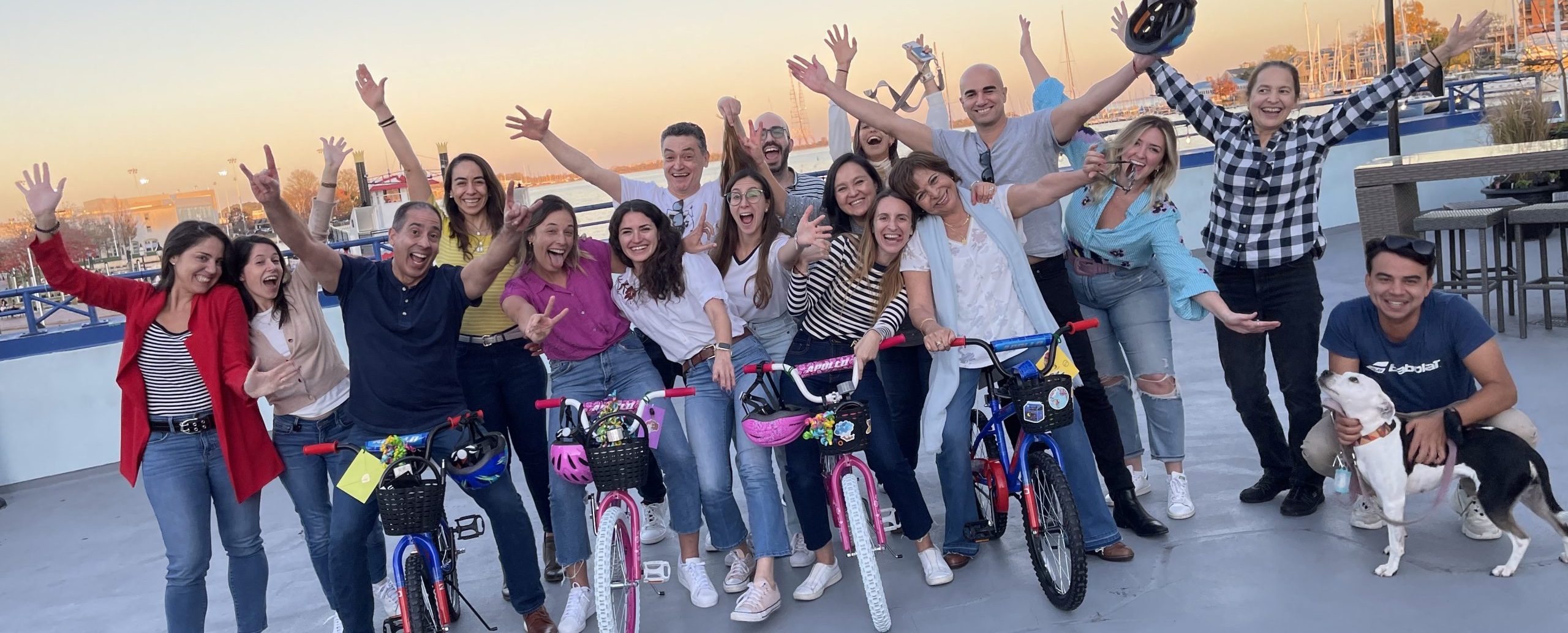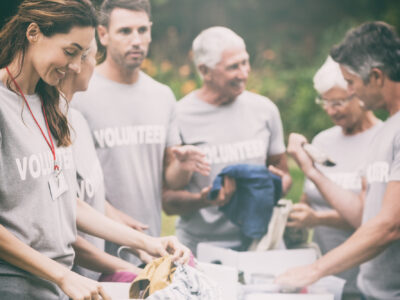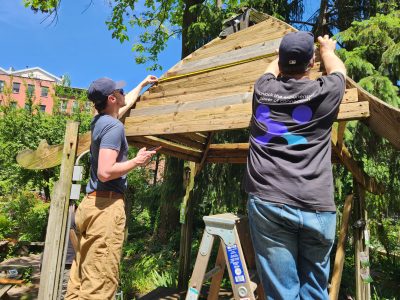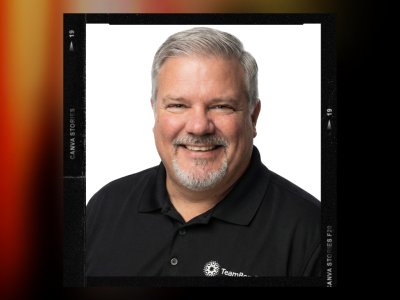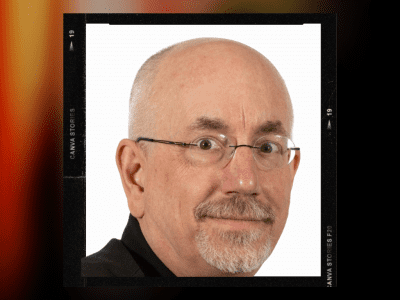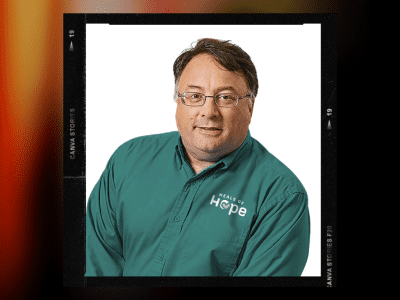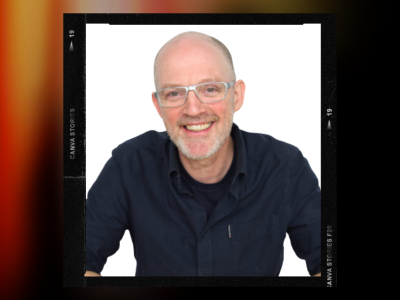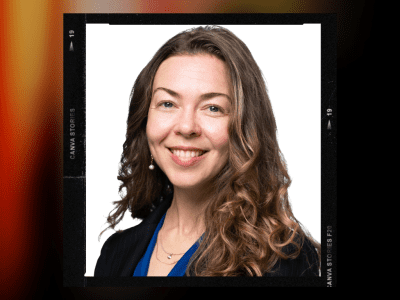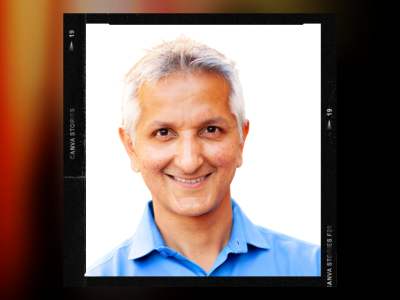STRONG TEAMS DON’T HAPPEN BY CHANCE 
See, Do, Get: Boosting Efficiency in the Workplace
w/ Kory Kogon
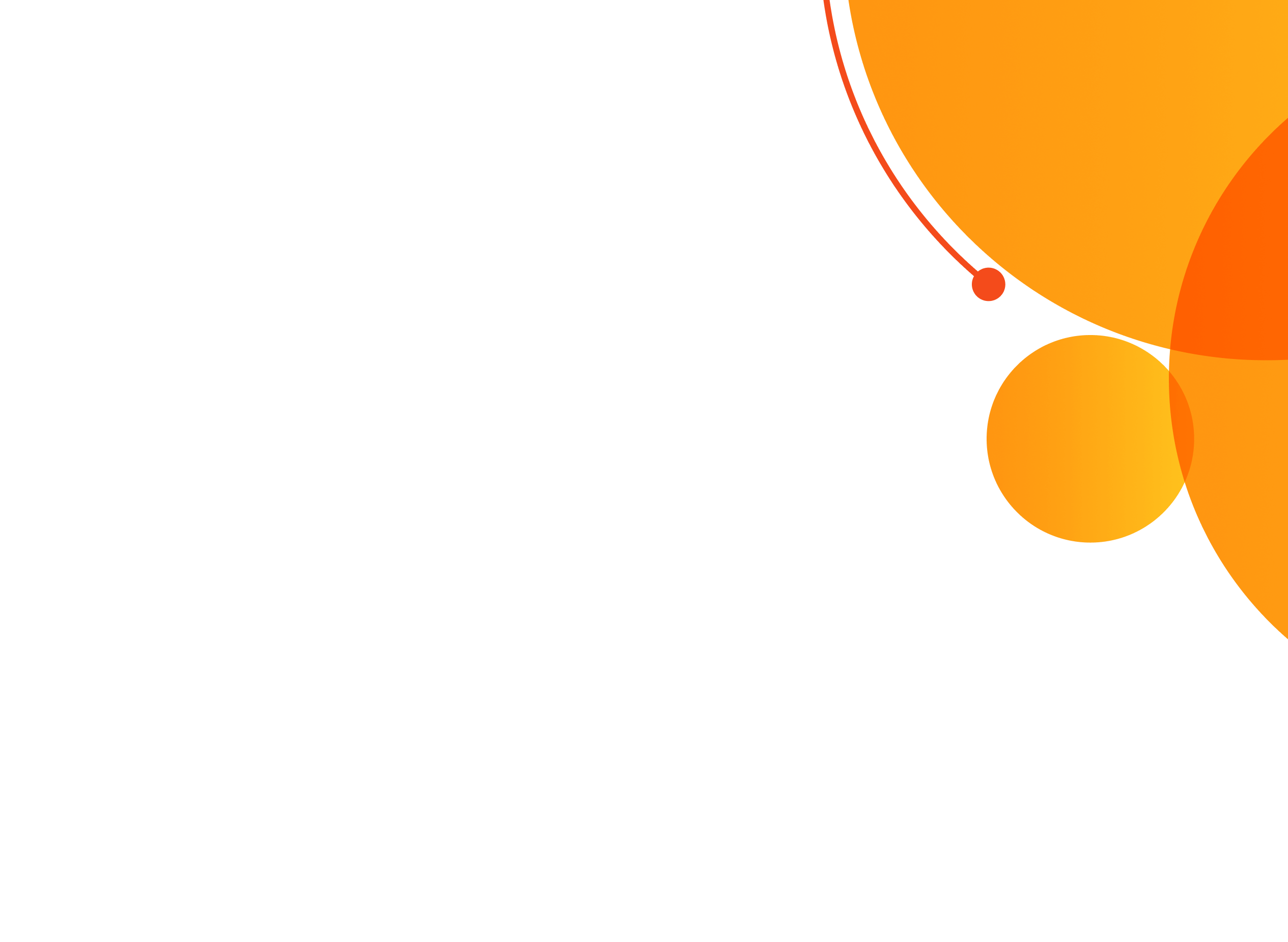
Use the buttons above to listen now.
Transcript - See, Do, Get: Boosting Efficiency in the Workplace
Richard Rininsland: Hello, team. It’s me, your old friend, Rich Rininsland, host of Team Building Saves the World. A show where I speak to thought leaders from around the world, discussing variable strategies and tools to help you and your team build a better work environment. And today we’re going to learn how to lead with Franklin Covey’s VP of content development and bestselling author, Kory Kogon.
But first, I do have to share some love with my supporters at TeamBonding. If your team is ready to experience teamwork, the power of play to visit teambonding.com to learn more. Now team, join me welcoming my guest, leadership facilitator, and one of the authors of the five choices, the path to extraordinary productivity, Kory Kogon. Kory, Hello.
Kory Kogon: Hello! Hello, Rich. So great see you.
Richard Rininsland: Thank you so much for coming on. Let’s start, like I usually do here to introduce you to my team out there. Tell them a little bit about yourself, how you got started in this business and what it was that made teaching people how to be leaders, your course in life.
Kory Kogon: And so I can start with being born and raised in Brooklyn, New York. So, and you know, go from there. Oh, excuse me. And I live in Tucson, Arizona, so I’ve been out of New York City for many years, but that whole persona has come with me along along the way. I you know, was in sales very early in my career and was pretty good at it and started training people.
And having done that, I ended up at my previous company and ended up as head of training. And it was franchise organization. So work with small businesses. And so really we were training people on how to, you know, get what they want out of the business, be profitable, have fun, be happy. All of those kinds of things.
We were a Franklin Covey company. We had a seven habits culture. And so after I was done with my last company I started to work with Franklin Covey because my, my. Contribution to the world was really helping businesses succeed. And so, you know, business owners for the most part, and it was small business.
And then working with Franklin Covey, I was exposed to all types of businesses and leaders, and it really was my passion to take my practical experience with Franklin Covey’s timeless principles to really help people, teams, and organizations practically implement. Those things that would make them better.
So here I am 18 years later and doing the same thing and just every day interested in productivity and leadership and how I can help make people team and organizations better. So that’s the story.
Richard Rininsland: Nice. And you had mentioned these seven habits, you’re speaking of course, of these seven habits of highly effective people, book by Stephen Covey one of your, one of your own, is that one of your founders?
Kory Kogon: Well, Stephen Covey, Dr. Stephen Covey, was the founder of the Covey Leadership Center, and then that merged in 1998 with Franklin Quest becoming Franklin Covey. The Seven Habits of Highly Effective People was his life’s work, and to this day remains one of the top business books of all time. It’s sold over 40 million copies now, and two to three thousand books a week.
It’s really amazing, and Our courses over the years, the seven habits courses, we’ve had over a 100 million people go through our courses. So it’s been a phenomenon and just we just recently relaunched it, reimagined it, put millions of dollars into it to take those timeless principles and habits and point them at the issues and stuff that’s going on in the world today.
Richard Rininsland: And there’s a lot, I mean, that’s, it’s a very different world than it was when the book was first written. But can you give me just a broad overview of the book itself? Just for my team out there who might not be familiar.
Kory Kogon: Stephen was, you know, the first thing is Stephen would say there’s nothing new in the book.
Richard Rininsland: Okay.
Kory Kogon: They’re timeless principles, but his genius was in how he packaged it all up to make it doable and accessible. So it’s really the overview of it Through what he called the emo, the ma, the emotional maturity continuum, moving people from dependence, maybe feeling a little victimized, blaming everybody and everything to independence.
Where we are responsible, we’re seen as credible, and this moves us to interdependence, where we’re really valuing other people and getting to creative collaboration, all that is surrounded by the fact that those six things are really hard. And you need to sharpen the saw. You really need to take care of yourself to be able to do that kind of work.
And the seven habits build through that maturity continuum to really approach creative collaboration which is so important in today’s in today’s world. So, just in summary, he talks about through the maturity continuum, the private victory. Am I showing up as responsible? And the public victory, am I socially aware to be able to dialogue and build relationships?
With high trust relationships with other people to get to creative collaboration
Richard Rininsland: Nice. Very nice. You had mentioned how you normally use this to help to educate and facilitate for ownership. Yeah. Of certain companies. Is this something that is specifically you would recommend just for owners, or is this something that somebody who wants to maybe one day be their own owner or just be a leader within their own organization to
Kory Kogon: you might be want to be a leader in your family.
Richard Rininsland: Okay.
Kory Kogon: you know, so this is, you know, frankly, we say we we enable greatness and people and organizations everywhere and that it’s all about leadership. So we say individual contributors have to lead themselves, you know, first level leaders have to lead a team, et cetera.
We are also the seven habits is. And I think 7000 schools K through six around the world called the leader in me because everybody has the ability to show up as credible and responsible, be proactive, begin with the end in mind, you know first things for etcetera. And so it’s for whether you’re an individual contributor, leader of a team or an organization, and seven habits culture as an organization as a whole.
We have a ton of case studies around that as well. So bottom line, Rich, it’s for everybody.
Richard Rininsland: Great. Now I’ve, I have always said through my years of facilitation because I’ve been with team bonding since 2009 and I have said throughout the entirety of my career with them, I could always tell which teams are going to do well because I can, you can spot the one that has that natural leader.
The one who not only everybody automatically just gravitates towards and listens to but who also knows to listen to everybody else and take everybody’s ideals, you know, and their thoughts into putting together the perfect whatever exercises I happen to be going through at the time. How hard is it to learn to make yourself one of those kind of leaders?
Kory Kogon: So we have a saying, we did not invent it, but, you know, people say leaders are born leaders. Well, everybody’s born. So
Richard Rininsland: That’s true. You’re not wrong.
Kory Kogon: So leadership can be learned and, and is it hard, you know, it’s sort of, like I said before, I don’t, I, and I am a laboratory rat because I’ve been in executive leadership for 30 years, even hard coming out. I’m at 30 years, right? And and I don’t want to show up as an imposter like, oh, here’s all the great things you should just do the seven habits.
Richard Rininsland: Yeah.
Kory Kogon: It is, it is, I’m blessed to be able to facilitate this every day. We say, Stephen said, teach to learn, right? So, you know, being proactive, meaning there’s a space between stimulus and response, that’s habit one, meaning You know, have you ever hit the send button on an email and wish you could take it back whether at home or at work and just learning to count to 10 to before I send that email?
Let me just think about it. What outcome do I really want to get? As a leader, you know, before I said, oh, you did a terrible job on that. How do I catch myself? How do I see things differently in order to inspire a team member to want to get better or fix something? So, without going into all the details, it’s doable because.
Seven habits. A lot of our leadership work is packaged in a way that it’s accessible. You can practice it. You can get good at it. If a leader is my and we’re all about my Stephen is all about mindset and perception. See, do get how I see the world is going to affect what I do to get the results that I want.
This is the secret sauce of everything that we do. And so if we can get people that are open-minded to examine their paradigms and how they see the world. And shifted to wow, people in today’s work only will volunteer their best efforts to be successful. I can’t beat them over the head. And so I get it. If I am inviting them to be engaged, I’m going to get a completely different result.
So, is it hard? It’s hard to do it. You gotta discipline yourself to it. If you’re open to it and willing to shift your paradigm, anybody can do it.
Richard Rininsland: Especially in a world like today where it seems that everybody’s because of social media or the internet at large, or everybody seems to have their own personal cheering section telling them they’re always right. How do you get them from that to actually listening to another point of view? Because if, like you say, Everybody can be a leadership in any, in any way in their own family or, you know, their own communities, how do we get people back to listening?
Cause I, I, I do want to point this out. I was looking through doing my due diligence and I have to admit habit five just sang to me. So for my friends out there, my team who listening seek first to understand, then be understood that that just touches the Taoist in me, like no end. So how do we even possibly get that
Kory Kogon: You know, you can’t force it, and can’t tell people how to think. You know, that’s, that’s the bottom line here, right? The seven habits are in order for a reason.
And and, and what can I do? Stephen called it the four human gifts. I, you know, what result am I getting? What’s a different result that I want to get? How do I get there and how do I get it done under pressure? When people are pressuring me into saying, Oh, no, you’re always right. You know, that kind of I’m going with the group.
So if we, if we can do that, and we sort of figure out what our outcome, who do we want to be out there, and then I get to social awareness of the attitude of win, win, like, wait a minute, because, you know, when you look at somebody, you’ll go, they have no, they have no IQ, because they’re like, they don’t, they don’t see me at all.
Right. And so have it for win, win, mutual benefit. I see you. What’s a win for me? What’s a win for you? If I’m willing to be open to that, and I see value in that, it’s going to organically have me want to hear your point of view. So, and be in your shoes. So there’s a methodology to get people there. 100, 100, 100, If you think about a bell curve, it’s going to be people that are never going to be changed.
And you’re going people that are going to do it great. Right in the middle, we say, we call them not yet. There’s a lot of people that if you stick with it, that will want to do what you’re saying. Last thing I’ll say about this, habit five could not be more important in today’s world. Putting yourself in other people’s shoes, hearing, they’re giving them space for their point of view versus just, you know, Our point of view when we’re in a remote hybrid world where people are making up stories in their head in their office, you know, they’re their home offices
Richard Rininsland: Everybody you see is only a little screen on a minor on your bigger screen.
Kory Kogon: I’ll give you just a very quick example that people will resonate to at home. When you are having an issue and I’m not good, I’m not good enough at this in my household, I must say, but something’s going on and your partner, your spouse is telling you a story and you’re like, okay, but just do it this way.
I can, I can fix it for you. And they’re like, stop it. I don’t need you to fix it. I need you to listen to me. 31 years later in my relationship, I am still working on it, but boy, when you can keep your mouth shut and really just listen because your brain is chattering away, it wants you, you know, we’re going against the way our brains were built.
So it’s a really important habit. So I’m glad you resonated with it.
Richard Rininsland: Thank you. Thank you very much. And I want to keep going on with this query because they’re fascinating and there’s so much more to dig into. I hope you don’t mind though. I do need to step away just for a quick second because I need to tell my team out there about a company. I am very proud to be a part of team bonding team bonding was founded over 20 years ago with one simple question.
How can employees have a great time while fostering strong, authentic bonds between people who work together? No matter where your company is located, Team Bonding offers powerful, engaging, custom team building events designed to get the best out of your team anywhere in the world. They’ve created a catalog of innovative events using the power of play as a learning tool and tapping into the correlation of work and play.
So whether it’s scavenger hunts to Jeopardy or so much more, the team bonding of activities, whether it’s live, virtual, or hybrid maximize the impact of team building with an accent on fun to visit team bonding. com to schedule your event. Now, team bonding when you want seriously fun results, and I am back having a seriously fun conversation with Corey Kogan, Corey Team building itself.
Is it something that you would recommend to clients or is it something that you think is kind of superfluous?
Kory Kogon: Oh, no, I, I, you know, I think sometimes. It’s about the type of team that it is. But for the most part, when we say creative collaboration, if we are, you know, when you think about, I like to ask this question you know, or give a statement to people and say, here, what do you think of this statement? Your team has no inherent right to exist
Richard Rininsland: Wow. Yeah.
Kory Kogon: Now people have a right to exist, but it really does what it does to you because when you think about it, why does a team exist and a team exists to achieve an outcome? That’s I mean, if you think about it, why else would you have a team? And so whether it’s a goal or whatever. So when a team exists to achieve a goal, if we are all working in our own silos.
We’re all responsible. If I speak in terms of seven habits, we’ve achieved the private victory. We’re responsible, but we’re all working alone. Are we getting the best result depending on what the goal of the outcome was meant to be. And so that’s again, how do we get everybody up to creative collaboration, because the best work is going 1 plus 1 equals 10, a thousand, a million Because is mind share to use that word where we’re valuing the differences on the team.
We are everybody’s willing to, you know, put their ideas on the table. We’re getting clear on the outcome. We’re throwing different ideas. It’s a safe, psychologically safe environment. And we’re arriving at like, oh, my gosh, we didn’t even think about that because we came together. So. I don’t think there’s anything more important than a team and team bonding because the results are astounding once you realize why the team even exists in the first place.
Richard Rininsland: But because we’re talking, you just brought up one of my favorite phrases of all time, which is that emotional safety net that people have. But skills like that skills like keeping yourself emotionally safe, allowing other people to be emotionally say emotional intelligence. Self leadering how important are those things today, especially in this world of, you know, technology and AI and like you say, the fact that we are so separate from each other, like you’re in Tucson and I’m in Boston and yet we could work together every day.
Kory Kogon: Yeah, we’re global. I, you know, I was on, on the phone with my colleagues in Guatemala, you know, this morning. So that, you know, I, I like to say when somebody brings up the AI word words, I’m like, okay, do you have a few hours? Because this is a really big topic. And I, I say, there’s really three things about it.
Regardless of how you get these skills done, whether it’s the seven habits, whatever, these Soft skills, power skills, team bonding, all of that. First of all, a lot of people are terrified of AI still like, Oh my gosh, it’s going to replace whatever you, you need help. A lot of people need help in just how do I back to habit one?
How do I, how can I be proactive about this and talk myself out of being terrified of the new technology and stuff like that. And so how do I work in my circle of influence? And not be worrying about stuff that I can’t do anything about. So how do I embrace it? Second, leaders. Where their tasks are being replaced by technology and I administrative tasks leaves them the time to learn and get better at the interactions with their people.
So unbelievably important to help their people along through the changes, et cetera. 3rd, the people and the ones that are already the workers in the AI space, in addition to everybody else. Are demanding these skills to be taught in the organizations that they are going to work through. I just saw a new study this morning from Deloitte that was pointing this out.
We knew this you know, along the way that these skills again, however, your audience gets them done power skills to to really, you know, So emotional intelligence, because again, when you think about the seven habits, if you think of Daniel Goleman’s work around emotional intelligence, self awareness, self management social awareness, relationship management, the two parallel each other, and they are more important than ever in this new world of technology.
Richard Rininsland: Can you share some strategies with us just some, some clear measures of success on, on, on how people can create actionable plans to achieve them whether it’s in a short term or, or, or throughout their entire lives.
Kory Kogon: Well, I, you know, first of all, it’s a little subjective, but just being really conscious of, am I able to count to 10, consciously count to 10, and You know, and and do something different. So for me at home, it’s always a little victory for me when I do keep my mouth closed when I feel a response coming. So so I can I can measure that, you know, habit to is begin with the end in mind.
Everything should have an outcome. Every project, every meeting that in my life you know, the mission statement is very, you know, famous. I, the more you do outcomes, the more measurable it is. So if I’m creating outcomes of work. Or I’m creating goals on how I want to get better at certain things, then I’m going to have measurable outcomes in talking with my team.
Did I have that conversation on that day in order to achieve to listen to them in a way that I haven’t listened to them before? So, I hope I’m answering your question, but you can make this very practical for each of these things because these skills, even though they call them soft skills are really hard skills in order to get to creative collaboration.
Richard Rininsland: you give us any examples you’ve had throughout the trainings that you’ve given where you’ve seen that, that light bulb come on where somebody has understood that maybe they weren’t listening as much as they were hoping everybody else just shut up and listen to them or any of the other steps that came, came along the way.
Kory Kogon: Yeah, I’ve seen it in a number, you know, of organizations just you know, not listening. But I’ll go bigger than that. You know, one of our clients, it’s a big power company has been seven habits culture for 25 years. They continue to teach it today and they talk about and this is on our website. We have a number of case studies, but they just talk about when people have these are equipped.
The CEO was narrating this and talked about getting through at the time. At the time, Hurricane Katrina, who knew all the hurricanes we’d get, and just how everybody took on this mantle of leadership to really get, you know, the New Orleans area, Louisiana back up, you know, to to empowered in, in, in unbelievable, I mean, we have a million stories like that, the, the, the Thailand floods et cetera.
In our work meaning there was another company, the Thailand Floods, I mean, just these heroic, incredible stories. There’s a video, we have 18 new videos in our new course and one of them is, is a video of a mother and a son where he, I’m sure many people can relate to this, where he doesn’t want to practice the piano.
And and so she’s, you know, like, hey, you need to practice and he’s trying to tell her that and then you see direct to camera, you see what the boy is really thinking and what the mother’s really thinking. And then later you see it better done. But it is such a great example. Because it is visceral in seeing the mother was like, you know, I didn’t have this when I grew up and I wanted everything for my son and it’s good for him to practice.
In the meantime, he’s frightened about his teacher. He doesn’t like the way he, she hovers over him. And so, you know, it’s when you are listening, it’s a great example of when you’re listening from your point of view. And like I said, I, I’m my own example. I do that at home where I’m listening from my point of view and have to work really hard.
To hear my partner out because a lot of times, and I tend to people, I have a problem with finishing sentences. Do you know how that works? And so somebody will say to me, well, you know, okay, do you want to just finish the conversation by yourself or am I part of it? So it’s like, how do you just really listen from their point of view?
So I hope that gives you a couple of examples.
Richard Rininsland: It does. It does. In fact, you’re again speaking directly to me. I’ve mentioned this already in the podcast in previous episodes, but I have that habit of finishing someone’s sentence. Because I’ve had many partners who just kind of trail off or they can’t find the right word. So, I automatically try to fill it in for them and assume that that’s where they’re going.
And to this day, I’m still getting notes from people going, No, that’s not what I was going to say. Here’s what I was going to say instead. So, hmm.
Kory Kogon: Rich, I just want you to think about the impact of that because when you look for what’s measurable, you know, how is that harming your relationship with other people versus when they go, wow, thanks for listening to me. And, you know, even if you didn’t say a word, sometimes it’s like, boy, I really needed you to just listen.
And we call that the emotional bank account. Are you making these deposits into the emotional bank account, which is a real measure or is your bank account really low? And you really have some work to do.
Richard Rininsland: And speaking of which one of the things that I’ve always battled against not from my own sake, but from, from outside sources is that I don’t want to say narcissism, but that kind of narcissistic personality type who they’re always going to be the end all be all it’s always going to. And those are usually some of the most successful leaders we have seen in the world.
Because they know how to get for themselves and they know how to make everybody else look like what they’re doing is the way to do it. How do we get away from that philosophy? Cause that’s not going to lead to win, win. That’s only one lead to have it for. So how do we get away from that philosophy and try to teach people that listening is better.
Kory Kogon: That’s a very good question. And I would, again, I’m going to say this subjectively. I’m not going to put data behind this, but you said those type of people get results. What kind of results? Are they long term sustainable results? Or are they more short term? And that could be, you know, relative as well.
So, if you know anything about Jim Collins work on Good to Great and Built to Last it’s another book that’s not his that comes to mind, where, but Jim Collins explores Long-term success in companies and if he calls ’em level five leaders the nars, the narcissistic, and again, we don’t wanna label people, but those people that I’m the smartest person in the room, I know how to do all of this, don’t tend to have the longest term sustainable results.
Or keep the most talented people for very long, which will ultimately hinder results. So I would suggest we say, what do we mean by results? 1st, because if somebody can look at that and realize, because if you look at some of if you look at other great leaders. A lot of them, you never hear about them because they are quietly, highly successful.
So I can name, I’m not going to, number of companies that are truly some of the top in the world. You barely hear from their CEOs. They’re modest. They believe, and what we say, what sets great leaders apart? It’s the results they get. Long term sustainable results. What they do, but their minds. How they think about their people.
And their character. Those four things is what sets great leaders apart. And you don’t hear much from them. Because they’re modest. for
Richard Rininsland: yeah. And the work speaks for itself.
Kory Kogon: itself.
Richard Rininsland: Excellent. Excellent. I, I have to ask you if you don’t mind sharpening the saw. Habit number seven. Where did you, where did, where did that name come from? That, that phrase sharpening the saw and what does it mean?
Kory Kogon: Yeah. So habit seven sharpen the saw. So in the book, you’ll see, you can read the stories in the book where Steven has to, you know, people with logs. You know, they’re looking at, you know, they’re near each other and one guy is sawing away and he’s taking breaks and you know, and, and the other guy is sweating and sawing and he doesn’t stop.
He doesn’t take breaks. He, he just keeps going. And he’s like, this other guy has all the logs all stacked up, but he’s not there very much and whatever. And finally there’s sweat dripping, you know, guy who’s mad at the world turns to him and said, you’re not even here very much. How did, how did you get all this work done?
And I can barely get through one. He said, why? Because I stopped to sharpen the song. Get it?
Richard Rininsland: Nice, nice, nice, nice. So
Kory Kogon: So, the point is, you gotta stop and take care of yourself in order to do what I said the other, you know, six habits. Another famous statement that Steven made was, are you too busy driving to stop to get gas?
Richard Rininsland: nice. That’s very good. So what do you recommend though, to somebody who needs to stop and sharpen their own saw? I mean, how do you think people can help themselves to maintain their own sense of self, and therefore, therefore maintaining their productivity over time?
Kory Kogon: Well, couple of things. First of all, what we say is you have to get over the paradigm. I’m too busy to do any of that. And really shifty paradigm too. I’m going to take care of myself as a whole person. So we look through the lens of mind, body, spirit, and heart. And there’s actually an assessment in the course where how am I doing, right?
Cause you want to label reappraise. I need to get real with how I’m really doing with this, where my opportunity lies. To take care of myself. Honestly, people are so overwhelmed today, but it’s an absolute and we have a terrible statistic in the new course now is that over half of people going back to what I said about the car and gas over half the people.
will not do anything about their well being until after they’re already burnt out or stressed out. And so again, this is about proactivity. Habit one. How can I be proactive to do better, to sharpen, you know, to be able to cut wood, you know, and take, you know, and be my best self.
Richard Rininsland: Okay.
Kory Kogon: one of the authors on the five choices to extraordinary productivity.
We talk a lot about about this and owning how I need to show up as whole and healthy breathing, stopping after a project, taking a walk. The neuroscience that supports pausing, taking a break reducing stress in this time in the world, you know, with everything going on, just how do I do that? How do I take time to relax?
How do I get enough sleep? How do I make sure? I know it sounds like we’re supposed to be doing the, you know, our parents taught us this, but if you could just do one of those things, eat, sleep, move, relax or and connect with other people, which is also really important to wellbeing. Do what? Find one of those things and get started and be proactive about it.
Richard Rininsland: Nice. And if you can, I just want to, I want to see for my team out there who they’re, they’re not ever going to be, they’re not in a position where they’re going to hear, you know, from you soon where they’re, where they’re going to actually be able to be involved in one of your classes or so on and so forth.
No. All right. What can you say to them that will help them to get started in taking care of themselves in this way and seeing themselves as the leader they want to be?
Kory Kogon: I think go, go get the book. Not only get the, I mean, really, I mean, that’s how you can start. It’s a, it’s a great read. It’s very popular. And I’ll also say Sean Covey, Dr. Covey’s son, one of many sons wrote the book, Seven Habits for Teens and the Seven Habits of Happy Kids.
Richard Rininsland: Nice.
Kory Kogon: I personally, I mean, the book is, you know, the book is, is great, right?
I love the, you know, Seven Habits for Teens and Kids because it gives you the information really easily, you know, it gives you the salient points of it. The other thing you, so the book, you can go to our website and learn at www. frankencovey. com, learn a lot about it. And there’s some opportunities with some of our public classes and stuff like that as well.
Richard Rininsland: Do you see this changing at any time in the future? Because you say the book has been out for how long now?
Kory Kogon: Almost 40 years.
Richard Rininsland: Right. I mean, and the world has gone through such changes. Pandemic be damned. Just in growth. So what do we see the kind of changes coming forward that there might be in this kind of program?
Kory Kogon: So we just, October 28th, our time is flying, so we’re three days away. We just invested millions into reimagining our course, because the course I told you 100 million people have been through our courses. We periodically reimagine it to meet the contemporary world. So, and what Stephen said was there’s three constants in life change, which we know choice is that we, we have the ability that space between stimulus and response to make choices and principles.
So the habits and the principles remain constant. He always said the tougher the world, the more important. The habits and the principles become so we’ve reimagined them. They’re not going to change because principles are timeless laws that you can try to break them, but they’ll break you first if try defy So reimagining is how we go about it. But you want the seven habits remain the seven habits.
Richard Rininsland: Fantastic, Corey Cogan, I cannot thank you enough for coming on. My friends out there, please give another big round of applause for Corey Cogan. Corey if we can, let’s, first of all, did you have a
Kory Kogon: I had a wonderful time. Thank you so much for having me rich.
Richard Rininsland: we could just keep going on and
Kory Kogon: Yeah,
Richard Rininsland: God knows the depths that all this could take but I don’t want to take your entire Friday while we do this. I do want to ask though is there a way that my, like you said, you’ve already said the team can go onto your website, but is there a way they can find out more about you and possibly find some of the things you’ve written?
Kory Kogon: thank you for asking. You can find me on LinkedIn. That’s the best place to go. So go there and you know, I’m happy to connect with anybody and respond to any questions or thoughts that you, you might have. So thank you for asking. And you’ll find me on the FranklinCovey Speakers Bureau as well.
So on the FranklinCovey. com website. Thank you so much for asking.
Richard Rininsland: Thank you, and thank you out there, team. I, I ask if you’re enjoying yourself, Corey, because it’s time for my speed round.
Kory Kogon: Okay.
Richard Rininsland: Alright, we didn’t get into this in the preview. I told you that it was coming up, but I didn’t tell you exactly what it was. What’s gonna happen is, I’m gonna play a piece of music for 60 seconds. That just keeps me in mind of the time during that 60 seconds. I’m going to ask you a series of completely innocuous questions.
These are just simple little questions. Very easy to answer. The objective being to get to know you as well as we can within 60 seconds. If you are feeling at all a competitive, we have hit 15 questions asked and answered so far this season, you don’t have to do it. And this is just about learning more about you and having a good time.
But if you’re feeling up to it, let’s see if we can get it done. You got it? Okay, let’s give it a shot. We’ll see how we do. And as soon as you hear the music, I’ll ask the first question. Away we go. What’s your name? How many kids you have?
Kory Kogon: Zero. Well, one. Defcon.
Richard Rininsland: Okay, how many pets?
Kory Kogon: None right now. I lost my pet a year ago.
Richard Rininsland: Oh, I’m so sorry for your loss. What is the your favorite thing you’ve ever written?
Kory Kogon: Five choices to extraordinary productivity.
Richard Rininsland: If you could have somebody play you in the movie of your life, who would it be?
Kory Kogon: Sandra Bullock.
Richard Rininsland: Nice. Your favorite holiday?
Kory Kogon: Hanukkah.
Richard Rininsland: Your favorite children’s book?
Kory Kogon: Habibi and Yao.
Richard Rininsland: Okay What is your favorite ice cream?
Kory Kogon: Coffee.
Richard Rininsland: Favorite family vacation spot?
Kory Kogon: Hawaii.
Richard Rininsland: If you could choose a nickname for yourself, what would it be? Who’s the funniest person you know?
Kory Kogon: Don Rickles.
Richard Rininsland: Favorite thing about your grandparents?
Kory Kogon: I love them all dearly.
Richard Rininsland: Nice. Twelve! That’s still really good! again, Corey. Is there something coming up for you that you know, to where people can find you or go see you or hear you speak?
Kory Kogon: well, I just want to say, you know, with the comedy, Don Rickles, that’s, he’s an all timer. Leanne Morgan is really my favorite today. So, just by the way, Leanne Morgan. For those who are like, who the heck is Don Rickles? But it’s Leanne Morgan today, because I couldn’t think fast enough. Is anything coming up from me?
Again, you can find me on the Franklin Covey website. The other thing is we have a number of, we’re launching the 7 Habits around the country, around the world right now. So if you go on the site and you see some locations I’ll, I’ll be hosting a few of those. So thanks for asking.
Richard Rininsland: Fantastic, and thank you, my team out there. That’s it. We are wrapping up yet another episode of team building saves the world. If you’re a new fan of the show or you’ve been here forever and you just want to share what you know, I’m going to start this over again. That was completely awful. This is a great thing about this show.
I get to edit myself. All right, my friends out there, that’s it! We are wrapping up yet another episode of Team Building Saves the World. If you’ve enjoyed this episode, whether you’re a new fan of the podcast or an old fan of the show, please be sure to share it with everyone you know. Whether they’re a co worker, a friend, a family member, it just helps us to share all this vital information.
You can find out all about us including all past episodes at teambonding. com slash podcast. You can also find us wherever you find your favorite podcasts. Google Podcasts, wherever you’re going to listen, we’re going to be there. And don’t forget to look for us on all the social medias at Team Bond Podcast.
Leave me a message, tell me what you liked about the show, or if you have an idea for a future topic for the podcast, I want to hear from you. So, before we say our farewells for this episode of Team Building Saves the World, please never forget, my friends, that if you are within the sound of my voice, you’re on my team now, and I am forever going to be on yours.
So long, team! We’ll see you next time.
October 29, 2024
In this episode of Team Building Saves the World, Rich is joined by Kory Kogon, Vice President of Content Development at FrankinCovey, for a discussion on workplace efficiency. She explains her approach to leadership consulting and lists a few habits of successful people that are important for those in leadership positions. The pair dive into how team building can be a useful tool for boosting group synergy and achieving business results. She also mentions several classic FranklinCovey slogans that inspire efficiency such as “see, do, get” and “change, choice, and principles”. Tune in to uncover the meaning of these slogans and learn how to incorporate them into your lifestyle and workplace!
About Kory Kogon:
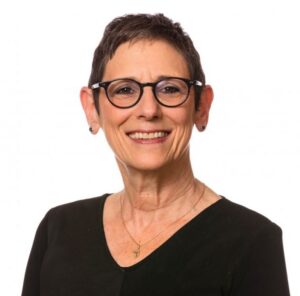 As the Vice President of Content Development at FranklinCovey, Kory uses her 25+ years of business expertise to help build great leaders, systems, and winning cultures. She is one of the authors of the Wall Street Journal bestseller “The 5 Choices: The Path to Extraordinary Productivity” and several other books that share her productivity and leadership expertise. Kory has been featured on Inc.com’s Productivity Playbook online series, FastCompany.com, and Forbes.com; in Investor’s Business Daily; and numerous other articles and blogs. She has also appeared on NBC’s TODAY and MSNBC’s, Your Business program. Kory’s proven philosophies help leaders become their best selves and improve overall workplace efficiency.
As the Vice President of Content Development at FranklinCovey, Kory uses her 25+ years of business expertise to help build great leaders, systems, and winning cultures. She is one of the authors of the Wall Street Journal bestseller “The 5 Choices: The Path to Extraordinary Productivity” and several other books that share her productivity and leadership expertise. Kory has been featured on Inc.com’s Productivity Playbook online series, FastCompany.com, and Forbes.com; in Investor’s Business Daily; and numerous other articles and blogs. She has also appeared on NBC’s TODAY and MSNBC’s, Your Business program. Kory’s proven philosophies help leaders become their best selves and improve overall workplace efficiency.
Pausing, taking a break, reducing stress in this time in the world, with everything going on, just how do I do that? How do I take time to relax? How do I get enough sleep? I know it sounds like we're supposed to be doing all of this, but if you could just do one of those things: eat, sleep, move, relax or connect with other people—find one of those things and get started and be proactive about it.
Kory Kogon
More great podcast episodes.
Season 6 | Episode 18
That’s a Wrap!
Season 6 | Episode 17
Work-Life Integration
Season 6 | Episode 16
Laughing it Off
Season 6 | Episode 15
Corporate Volunteerism in Action
Season 6 | Episode 14
Collaborative Play at Work
Season 6 | Episode 13
The Science of Supportive Workplaces
Season 6 | Episode 12
The Power of Being Present
Season 6 | Episode 11
The Age Advantage
